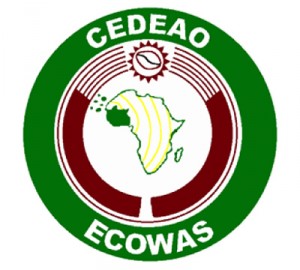Science journalists appeal to ECOWAS to invest in STI
 Science journalists within the ECOWAS region have advised ECOWAS to invest heavily in Science, Technology and Innovation (STI), to win the fight against poverty to accelerate development.
Science journalists within the ECOWAS region have advised ECOWAS to invest heavily in Science, Technology and Innovation (STI), to win the fight against poverty to accelerate development.
The journalists gave the advice in Abuja in an eight-point communiqué at the end of ECOWAS Regional Capacity building Workshop for science journalists from the ECOWAS Anglophone countries.
It was on the theme: “Making Science and Innovation more Accessible for ECOWAS’ Citizens.”
The workshop created the platform for the journalists in the sub-region to improve on the quality of their reportage especially on science and innovation issues.
The communiqué among other things said STI was responsible for sustainable development in many parts of the world, which ECOWAS must embrace to ensure rapid development.
The workshop was organised because sustainable development in the region has to be science led and this has to be driven by an unprecedented transfer and acquisition of technology and knowledge.
This multi-sectorial flow of knowledge in science between the different actors and players, which are end users, policy makers, scientists and innovators, must be catalysed by a robust communication system put in place and animated by the professional journalists in science and technology.
Media in general could play a central and critical role for Africa’s socio-economic development.
For instance, in the area of health, the fight against HIV and AIDS, tuberculosis, malaria, virus such as H5N1 and Ebola, science journalists therefore report in ways that contribute to the prevention and control of these diseases and positively influence the attitudes and behaviours of communities, societies and decision makers.
Participants were drawn from Ghana, Nigeria, Liberia and The Gambia and the topics they treated included ethical issues in Science, Technology, Engineering and Mathematics, the Scientists, Journalists and Sustainable Development, Media Policy in Science Reporting in Africa, Communicating on Climate Change, Biodiversity, Biotechnology and Renewable Energy, the role of the media and the overview of the global environment of the Science, Technology and innovation.
The communiqué said Africa was lagging behind considerably in sustainable development because of low scientific activities while weak ECOWAS member states in media relations was one of the biggest problems facing ECOWAS.
It said there was also weak communication gap between scientists and the mellow, low patronage of science issues including climate change and that all many African Universities and other institutions of higher learning had not adopted the UNESCO curriculum for science journalism.
The communiqué recommended among others that quarterly capacity enhancement training in selected countries for science journalists; initiate mentorship programmes for journalists, organise Annual excellence Awards for science journalists, formation of West African Science Journalists Network and active networking between ECOWAS and other AFRO regions on issues of scientific and technological development of the continent.
Source: GNA
